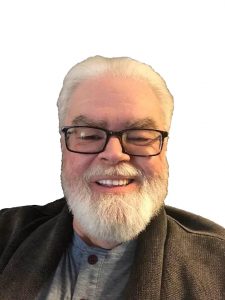 By Doug Dezotell
By Doug Dezotell
Musings and Memories
Studies found that it is better to eat Twinkies with good friends than to eat broccoli alone.
Pastor John Ortberg tells about a research project on relationships called the Alameda County Study. He wrote: “Headed by a Harvard social scientist, it tracked the lives of 7,000 people over nine years. Researchers found that the most isolated people were three times more likely to die than those with strong relational connections.
“People who had bad health habits (such as smoking, poor eating habits, obesity, or alcohol use) but had strong social ties lived significantly longer than people who had great health habits but were isolated. In other words it is better to eat Twinkies with good friends than to eat broccoli alone.”
That’s how powerful love is. Love is essential to our physical and emotional well-being.
Harvard researcher Robert Putnam notes that if you belong to no groups but decide to join one, you cut your risk of dying over the next year in half.
(I might suggest that you get involved in a good, loving Bible believing church, with a good, loving Bible preaching minister.)
If you look at a map of Alaska you will see a thin, wavy line about midway between Nome and Teller, Alaska. This line is known as Mary’s River. It was named for an Eskimo woman who had lived along the shores of the river with her husband and their two children.
During the Gold Rush Era, when men were frantically searching for gold in the Alaskan wilderness, tragedy struck and the village where Mary and her family lived was hit by a deadly flu virus.
The flu took the lives of both Mary’s children and her husband. Fourteen other children in the village lost their parents to the flu. Out of compassion, Mary adopted all 14 of those children. She also extended her hands of kindness to gold prospectors, offering them a place to stay and eat.
The miners who had a difficult time pronouncing her Eskimo name, decided to call her simply, “Mary,” as suggested by one of the miners who said, “It’s a grand old name.”
To honor her kindness to them, the miners named the stream that passed by her home “Mary’s River,” and it remains Mary’s River to this day. Mary married a second time and, of course, he was known as “Mary’s husband.”
When missionary teachers from the ‘Lower 48’ founded a school in the little river village they heard the stories of this woman’s love and kindness. So they named the settlement “Mary’s Igloo.” Maps today show this settlement as well.
As the village began to grow, other things were named in her honor as well. Now there are Mary’s trees, and even Mary’s reindeer.
Mary’s River, Alaska is a monument to the power of this woman’s love for her family and neighbors.
We all know how important love is to our lives. I know that I do. And I am so grateful that I’m surrounded by love.
In the Gospel of Matthew, chapter 22, this event is told: An expert in the Law (the Law of Moses), tested Jesus with this question: “Teacher, which is the greatest commandment in the Law?” Jesus replied: “Love the Lord your God with all your heart and with all your soul and with all your mind. This is the first and greatest commandment. And the second is like it: Love your neighbor as yourself. All the Law and the Prophets hang on these two commandments.”
Love God and Love your neighbor.
Love God and Love your fellow man.
Love God and Love your family.
Love God and Love even that person you disagree with.
If you truly Love God it will show in your life.
What it means to be a Believer, a Child of God, a Christian, can be boiled down to those two simple commandments: Love God and Love your Neighbor.
Love is at the Center of our Faith.
You may be familiar with the name Amy Carmichael. A loving Christian woman, Amy made a name for herself in India, where she touched the lives of thousands of women.
She was born and raised at the end of the 19th century in a Presbyterian home in Ireland. When she turned 16, she packed her things and moved to the city of Belfast.
She wanted to start a Presbyterian mission for women who worked in the mills. It didn’t take her long and the membership of her mission grew to more than 500 women.
Her ultimate goal was to be an overseas missionary. And she got her opportunity. After a brief stint in Japan, she was posted to India.
Carmichael had a strong spirit and a strong determination. However, she suffered from poor health which oftentimes left her no choice but to run her mission from her bed.
When her condition grew worse, she was moved back to her home in Ireland.
After a period of rest she again returned to India stronger and better, and this time she channeled her efforts to rescuing young Indian women who were working as prostitutes in Hindu Temples. Her efforts eventually led the government to ban temple prostitution across India in 1948.
Instead of returning home after completing her mission assignment, Amy chose to spend the rest of her life in India. After her death, Amy Carmichael was buried in India. The women and children she had ministered to erected a monument over her grave with the word Amma inscribed on it, meaning “mother” in the Tamil language.
Love is at the Center of our Faith. And Amy Carmichael personified that love.
The Apostle Paul said, “If I speak in the tongues of men or of angels, but do not have love, I am only a resounding gong or a clanging cymbal” (I Corinthians 13:1).
A wise person once said, “The skeptical eye with which the world regards the Christian community today could quickly be transformed into admiration and respect if we simply lived out these central two teachings of the Master. Love God and love your neighbor.”
Love is essential to our faith as followers of Jesus Christ; and Love is also essential to our physical and emotional well-being.
Jesus said, “By this everyone will know that you are my disciples, if you love one another.”
Each of us can reach out and make a difference in the life of someone who needs us.
A woman called Mary did that in Alaska, and a woman named Amy did that in India.
We can do that right here in Bedford County, Tennessee.
Love God and Love your Neighbor.
Doug Dezotell is the Pastor of Cannon United Methodist Church in Shelbyville, and he is a columnist for the Bedford County Post. You can find him on Sunday mornings at 11 a.m. in the pulpit of Cannon UMC, 1001 S. Cannon Blvd. in Shelbyville. You can contact Doug anytime at dougmdezotell@gmail.com or at 931-607-5191.





![For-Tips-and-Ideas-Phone-300x250-Bedford-County-Post[1]](https://www.bedfordcountypost.com/wp-content/uploads/2023/09/For-Tips-and-Ideas-Phone-300x250-Bedford-County-Post1-300x250.jpg)
![Subscribe-Now-300x250-Bedford-County-Post[1]](https://www.bedfordcountypost.com/wp-content/uploads/2023/09/Subscribe-Now-300x250-Bedford-County-Post1-300x250.jpg)
